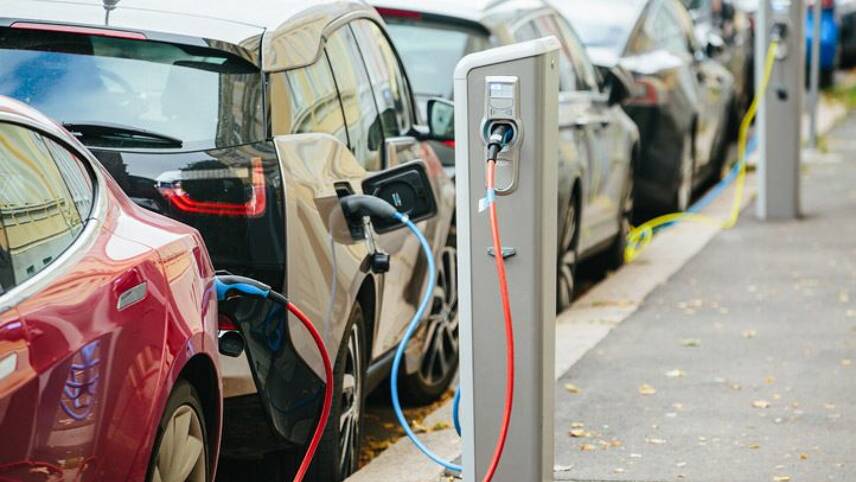Register for free and continue reading
Join our growing army of changemakers and get unlimited access to our premium content

The research found that 42 million tonnes of CO2 would be removed from the atmosphere by switching to EVs
Transport will be one of the main areas of focus for the UK’s net-zero emissions goal for 2050. Transport currently emits more greenhouse gases than any other sector of the economy and the UK Government has implemented its Road to Zero Strategy to outline specific steps to curb emissions in the sector.
New research published this week by NTU suggests that electrifying all 32 million passenger vehicles in the UK could reduce total national carbon emissions by more than 14%. While this will lead to an increase in emissions from electricity consumption, the researchers believe it will cause a modest 2.1% increase in emissions, and as such would deliver a total cut in carbon emissions of 12%.
The UK will have to deliver annual carbon intensity reductions of 10% to meet its net-zero legislation for 2050, up from less than 4% currently, according to a study from professional services firm PwC.
“These are encouraging findings and show just how much impact the switch to electric cars could have,” researcher George Milev said. “In the wake of the Covid-19 pandemic, we are regularly seeing reports on how the environment has benefitted from the decreased use of combustion engines.
“If and when the UK moves exclusively to electric car usage, we will similarly see real benefits in the dramatic reduction in levels of CO2.”
Road journey growth
The research found that 42 million tonnes of CO2 would be removed from the atmosphere by switching to EVs, reducing the transport sector’s emissions by more than 42% as a result.
The Government is aiming to phase-out the sale of new diesel and petrol vehicles by 2040. The ban could be moved forward five years to 2035, subject to consultation. For the first time, the UK’s polluting vehicle phase-out will include hybrid vehicles.
Department for Transport (DfT) figures show that there were 38.9 million vehicles on UK roads last year, 32 million of which were cars. However, EV integration remains low, with new registrations reaching 27,000 in 2019.
Friends of the Earth has accused the DfT of implementing policy frameworks which prioritise short-term economic development and congestion reduction over long-term carbon cuts. Such frameworks, it claims, include the Transport Investment Strategy, Major Road Networks guidance and Strategic Transport Plans of the Sub-national Transport Bodies. Since the campaign issued a report last year detailing these concerns, the Government has earmarked £27bn to be spent on new roads.
The group does acknowledge the introduction of more climate-focused policies in recent times, including the Clean Growth Strategy and Road to Zero, but argues that these place too much focus on the uptake of small electric vehicles (EVs) and not enough on reducing individual road journeys altogether.
Matt Mace


I’m finding it hard to access the data and assumptions behind this assertion. The NTU website has a press release saying a little more than the edie report, but crucially doesn’t give any assumptions around the CO2 emissions of marginal or additional electricity generation – are they continuing to use a grid average, and how are they forecasting this forward? The key is in "While this will lead to an increase in emissions from electricity consumption, the researchers believe it will cause a modest 2.1% increase in emissions". On the face of it, this seems unlikely, as electricity demand would be likely to go up by around a quarter, so that might suggest 80% of the incremental demand would be met by renewables. Does anyone have any firm data on this?